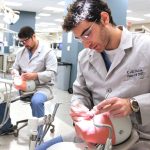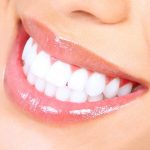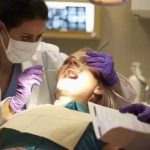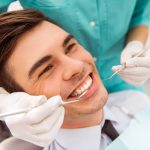When Can I Chew After Wisdom Teeth Removal? Tips and Timeline
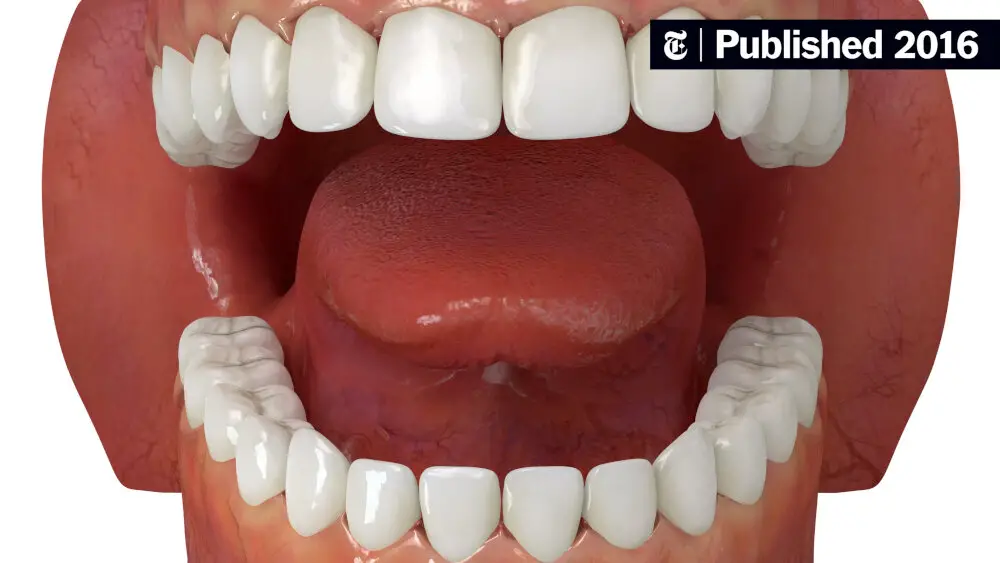
Wisdom teeth removal is a common dental procedure that many people undergo at some point in their lives. It involves removing one or more wisdom teeth, which are the third set of molars that typically develop in late adolescence or early adulthood. While wisdom teeth can be beneficial if they fully erupt and align properly, they often cause problems such as impaction, infection, and overcrowding. As a result, many people opt to have their wisdom teeth removed to prevent future dental issues. If you are planning to undergo wisdom teeth removal, one of the questions that may be on your mind is when you can start chewing again. In this article, we’ll explore the timeline for chewing after wisdom teeth removal and provide some tips to help you recover more quickly. After wisdom teeth removal, it is important to give your mouth time to heal before resuming your normal eating habits. Chewing can put pressure on the surgical site and disrupt the formation of a blood clot, which can lead to a painful condition called dry socket. This is why dentists typically recommend a soft food diet for the first few days after the procedure. However, the exact timeline for when you can start chewing again will depend on several factors, including the number of teeth that were removed, the complexity of the extraction, and your individual healing rate. Let’s take a closer look at what you can expect during the recovery period and when you can gradually reintroduce solid foods into your diet.
Wisdom teeth removal is a crucial dental procedure that is important for maintaining oral health. These third molars can cause a range of dental issues if left untreated, including overcrowding, impaction, and infection. In addition, wisdom teeth removal can help prevent gum disease, decay, and other oral health problems that can arise from the presence of wisdom teeth. While the process of removing these teeth can be uncomfortable, the benefits of the procedure far outweigh any temporary discomfort. After the procedure, it is important to follow the proper recovery timeline to ensure the best possible outcome.
The article \When Can I Chew After Wisdom Teeth Removal: Tips and Timeline\ provides readers with essential information regarding the recovery period after wisdom tooth extraction. The author starts by explaining why it is necessary to remove wisdom teeth and the potential complications that may arise if they are not removed. Then, the article focuses on the recovery period, including the timeline for when patients can start eating solid foods again. The author provides tips for managing pain and swelling during the recovery period and emphasizes the importance of following the dentist’s instructions to ensure a smooth and successful recovery. The article is informative, easy to read, and provides readers with practical advice to help them recover from wisdom tooth extraction.
Understanding Wisdom Teeth Removal
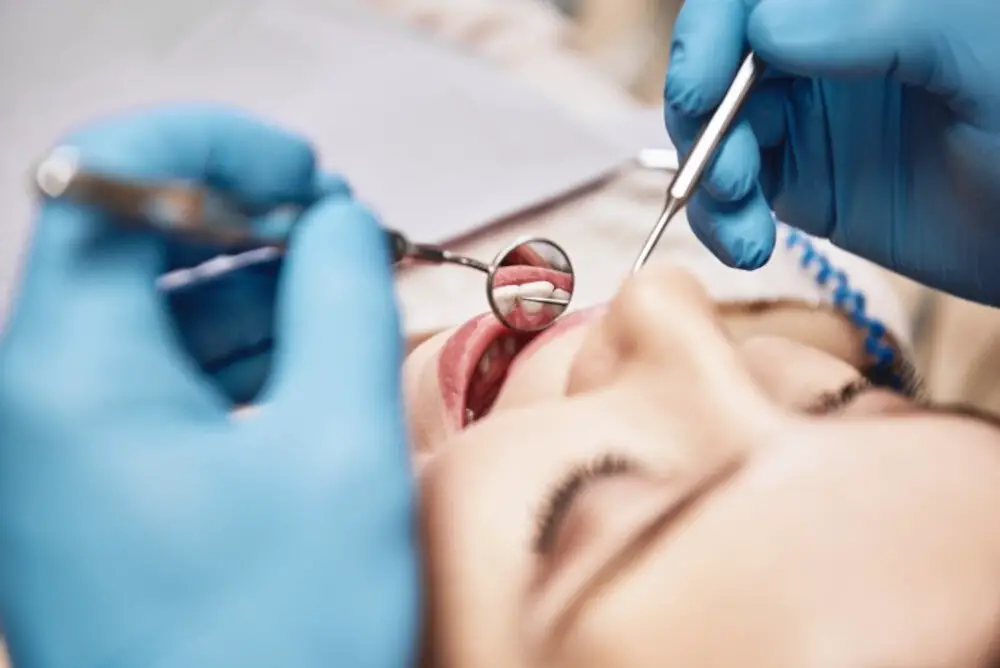
Wisdom teeth, also known as third molars, are the last set of teeth that typically develop in the late teenage years or early adulthood. However, they often cause problems such as overcrowding, impaction, infection, and damage to adjacent teeth. As a result, many people need to have their wisdom teeth removed, a procedure known as wisdom teeth extraction. This is a common and safe procedure, but it requires some preparation and recovery time. Before the procedure, your dentist or oral surgeon will explain the process and discuss anesthesia options, such as local anesthesia, nitrous oxide, or IV sedation. During the procedure, the dentist or surgeon will make incisions in the gums, remove any bone blocking the tooth, and gently rock the tooth back and forth to loosen it from the socket. If necessary, the tooth may be cut into smaller pieces for easier removal. After the tooth is removed, the dentist or surgeon will clean the site and place gauze over the socket to control bleeding and promote blood clotting. You will be given instructions on how to care for your mouth, such as avoiding hard or chewy foods, using ice packs, and taking pain medication as needed. It is important to follow these instructions carefully to ensure a smooth and speedy recovery.
Wisdom teeth, also known as third molars, are the last set of teeth to erupt in the back of the mouth. They typically emerge between the ages of 17 and 25, although some people may never develop them. Wisdom teeth can cause a variety of dental problems, such as crowding, impaction, infection, and decay. As a result, many dentists recommend that patients have their wisdom teeth removed as a preventative measure. Wisdom teeth removal is a common dental procedure that involves the surgical extraction of one or more impacted or problematic wisdom teeth. After the surgery, patients must follow specific guidelines to promote healing and avoid complications, such as avoiding chewing hard foods for a certain period of time.
Wisdom teeth are the last teeth to emerge and often do not have enough room to grow properly, causing pain, swelling, and infection. If left untreated, they can damage adjacent teeth, nerves, and bone. Wisdom teeth removal is necessary to prevent these complications, and it is typically recommended for people between the ages of 16 and 25. In addition, some people may have a smaller jaw, which leaves no room for the wisdom teeth to grow, leading to misalignment of teeth. Wisdom teeth removal is also necessary if the teeth are partially erupted, as this can cause food and bacteria to be trapped, leading to infection, decay, and gum disease. While not all wisdom teeth need to be removed, it is important to consult with a dentist or oral surgeon to determine the best course of action.
During the procedure of wisdom teeth removal, you can expect to be placed under local or general anesthesia, depending on your individual case. The dentist or oral surgeon will then make an incision in your gum tissue and remove the tooth or teeth. You may feel some pressure during the procedure, but you should not experience any pain. After the tooth or teeth have been removed, you will be given instructions on how to care for the surgical site and manage any discomfort that you may experience. It is important to follow these instructions closely to ensure proper healing and avoid complications. You may also be prescribed pain medication to help manage any discomfort during the recovery process.
Tips for Recovery
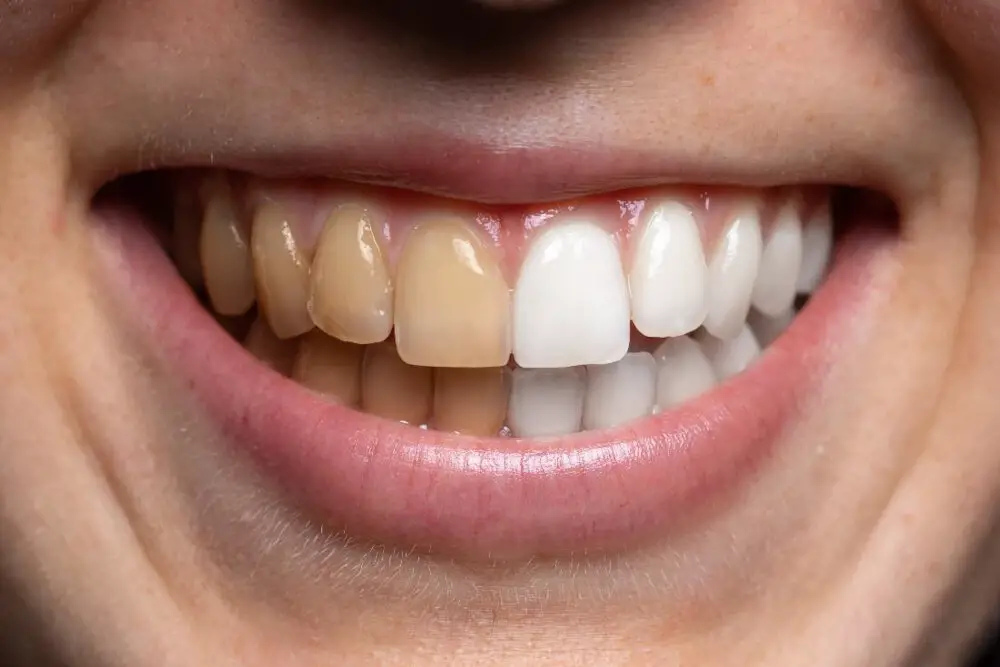
The recovery period after wisdom teeth removal can be a challenging time for many people. However, following some tips can help ease the discomfort and speed up the healing process. Firstly, it is essential to rest and avoid any strenuous activities for at least 48 hours after the procedure. This will allow the body to focus its energy on healing the affected area. Applying an ice pack to the cheek for 10-20 minutes at a time can also reduce swelling and discomfort. Secondly, maintaining good oral hygiene is crucial during the recovery period. Gently brushing the teeth and tongue with a soft-bristled brush and rinsing the mouth with warm saltwater can help prevent infection and promote healing. Avoiding smoking and using a straw is also recommended as the suction can dislodge the blood clot that forms in the socket and cause dry socket, a painful condition that can delay the healing process. Following these tips can help ensure a smooth recovery after wisdom teeth removal and minimize the risk of complications.
Pain management is an important aspect of recovering from wisdom teeth removal. After the procedure, patients may experience discomfort, swelling, and soreness in the affected area. To manage the pain, patients can take over-the-counter pain medications, such as ibuprofen or acetaminophen, as prescribed by their dentist or oral surgeon. Additionally, applying ice packs to the affected area and avoiding solid foods can help to alleviate some of the discomfort. Patients should also rest and avoid strenuous physical activity during the recovery period to allow the body to heal properly. With proper pain management techniques, patients can minimize their discomfort and ensure a smooth recovery from wisdom teeth removal.
Swelling and bruising are common after wisdom teeth removal and can be uncomfortable for several days. Swelling can be minimized by applying an ice pack to the affected area for 20 minutes at a time, with 20-minute breaks in between. Bruising may appear on the face and neck and can last for several days. Pain medication prescribed by the dentist can help manage discomfort and reduce swelling. It is important to avoid hard or crunchy foods that can irritate the area, as well as smoking and alcohol consumption, which can delay healing. Following post-operative instructions carefully can help prevent complications and promote a faster recovery.
Bleeding is a common side effect after wisdom teeth removal which can last for several hours, or even up to a day or two. The bleeding occurs due to the formation of a blood clot in the socket that is left after the tooth is removed. It is important to avoid excessive spitting, rinsing, or touching the area with your tongue or fingers to prevent dislodging of the blood clot, which can cause more bleeding. Instead, bite down gently on a gauze pad placed over the extraction site for around 30-45 minutes, and replace it as needed until the bleeding subsides. If the bleeding persists or becomes heavy, it is important to contact your dentist or oral surgeon for further instructions.
After wisdom teeth removal, it’s essential to follow a soft food diet to avoid damaging the surgical site. This means avoiding hard, crunchy, or chewy foods that could get stuck in the extraction site or require excessive chewing. Some examples of foods to avoid include popcorn, nuts, chips, and tough meats. Instead, opt for softer options such as soups, mashed potatoes, smoothies, and scrambled eggs. It’s also important to avoid hot, spicy, or acidic foods that could irritate the extraction site. By following a soft food diet, you’ll promote healing and minimize discomfort, allowing you to return to your regular diet as soon as possible.
Oral hygiene is essential after wisdom teeth removal to prevent infection and promote healing. It is important to avoid brushing the surgical site for the first 24 hours after the procedure to prevent dislodging the blood clot. After 24 hours, gentle brushing with a soft-bristled toothbrush can be resumed, being careful to avoid the surgical area. Rinsing with saltwater or an antibacterial mouthwash can also help to keep the area clean. It is crucial to maintain good oral hygiene during the healing process, as bacteria can cause infection and delay the healing process. With proper care, the surgical site should heal within a few weeks, and normal oral hygiene habits can be resumed.
Timeline for Healing

The timeline for healing after wisdom teeth removal can vary depending on several factors such as age, overall health, and how many teeth were extracted. Typically, the initial healing process takes about 1-2 weeks, during which time patients should avoid chewing or eating hard or crunchy foods. During this time, it is important to stick to a soft food diet and drink plenty of fluids to help reduce swelling and promote healing. After the first week or so, patients may gradually begin to add more solid foods back into their diet, but should still avoid chewing directly on the extraction site. It may take up to 4-6 weeks for the gum tissue to fully heal and for patients to be able to resume their normal eating habits. During this time, it is important to continue practicing good oral hygiene habits to prevent infection and promote healing. Patients should also follow any post-operative instructions provided by their dentist or oral surgeon to ensure proper healing and minimize the risk of complications.
The first 24 hours after wisdom teeth removal are crucial for a successful recovery. It is essential to follow the post-operative instructions provided by the dentist or oral surgeon to minimize discomfort and reduce the risk of complications. During this time, it is recommended to rest and avoid any strenuous activities. Applying ice packs to the cheeks can help reduce swelling, and taking prescribed pain medication can alleviate any pain or discomfort. It is also crucial to maintain a soft-food diet and avoid using straws or smoking, which can dislodge the blood clot and delay healing. By following these guidelines in the first 24 hours, patients can set themselves up for a speedy and successful recovery after wisdom teeth removal.
The first week after wisdom teeth removal can be a challenging time for patients. It’s common to experience some discomfort, swelling, and bleeding in the first few days. It’s crucial to follow the aftercare instructions provided by your dentist or oral surgeon. This may include using ice packs to reduce swelling, taking pain medication as prescribed, and avoiding certain foods and activities. During this period, it’s essential to maintain good oral hygiene by gently rinsing your mouth with warm salt water and avoiding brushing or flossing near the extraction site. While it can be tempting to rush the healing process, it’s critical to give your body the time it needs to heal properly.
The second week after wisdom teeth removal is a crucial time for the healing process. During this time, the swelling and pain should have significantly reduced, and the patient can start to introduce solid foods back into their diet gradually. However, it is important to continue following the aftercare instructions given by the dentist to avoid any complications. The patient should continue to rinse their mouth with salt water regularly, avoid smoking, and strenuous physical activities that could disrupt the healing process. It is also essential to keep the extraction site clean and monitor any signs of infection, such as fever or excessive bleeding. By the end of the second week, the patient should be feeling much better and can slowly resume their normal activities, but they should still avoid any hard or crunchy foods that could damage the extraction site.
The third week after wisdom teeth removal is the time when most people start to feel a lot better. Pain and swelling should have subsided, and any stitches should have dissolved or been removed by your dentist or oral surgeon. However, it’s important to note that some people may still experience mild discomfort or sensitivity during this time. It’s also important to continue following your post-operative instructions, including avoiding hard or crunchy foods, using ice packs as needed, and keeping the extraction site clean. By the end of the third week, you should be well on your way to a full recovery and able to resume your normal activities.
When Can I Chew After Wisdom Teeth Removal?
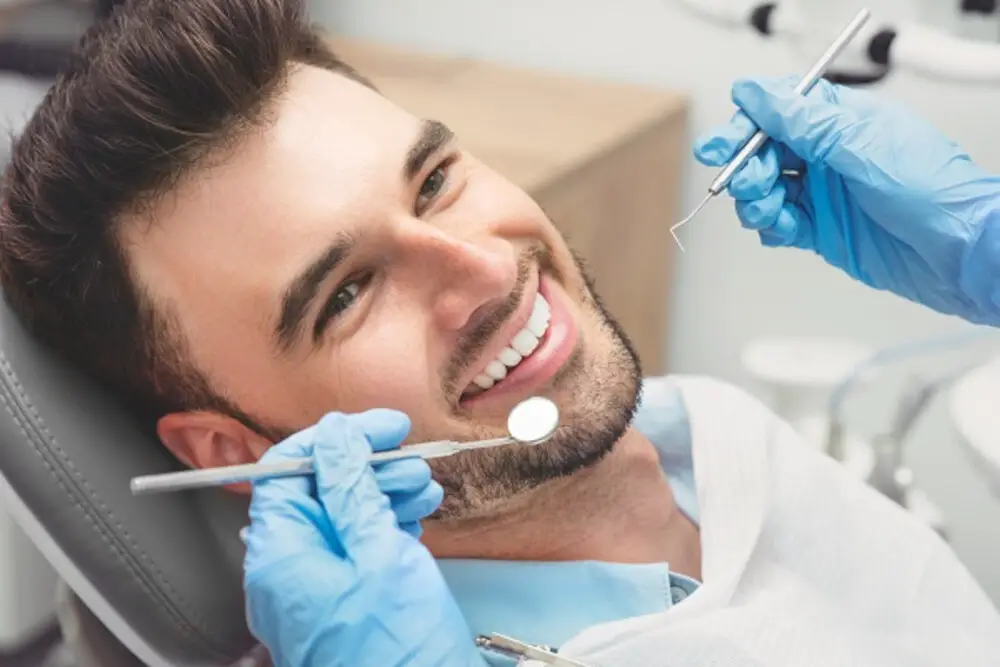
Wisdom teeth removal is a common dental procedure that many people undergo to relieve pain, prevent infection, and improve oral health. One of the most common questions that patients ask is when they can start chewing after the procedure. The answer to this question depends on many factors, including the type of surgery, the number of teeth removed, and the individual’s healing time. Generally, patients are advised to avoid solid foods for the first few days after surgery to allow proper healing and avoid complications. In most cases, patients can start chewing soft foods within a few days after the surgery. However, it is important to avoid hard, crunchy, or sticky foods that could damage the surgical site or cause discomfort. Patients should also avoid using straws, smoking, or drinking alcohol, as these activities can delay healing and increase the risk of infection. It is important to follow the aftercare instructions provided by the dentist or oral surgeon to ensure a speedy recovery and minimize the risk of complications. With proper care and attention, patients can resume their normal eating habits within a few weeks after the procedure.
A soft food diet is essential after wisdom teeth removal to avoid damaging the surgical site and to promote proper healing. Soft foods are those that require minimal chewing and are usually easy to swallow. Examples of soft foods include mashed potatoes, pureed soups, oatmeal, yogurt, smoothies, and scrambled eggs. It is important to avoid hard, crunchy, or sticky foods that can irritate the surgical site and cause discomfort. Patients should also avoid hot and spicy foods that can increase inflammation and prolong the healing process. Following a soft food diet for the recommended recovery period can help ensure a smooth recovery and reduce the risk of complications.
Gradually introducing solid foods is an important step to take after wisdom teeth removal. It is recommended to start with soft, easy-to-chew foods such as pureed fruits and vegetables, soups, and mashed potatoes. As the days progress, you can slowly introduce firmer foods such as cooked vegetables, scrambled eggs, and pasta. It is important to avoid crunchy and chewy foods for at least a week after the procedure to prevent any damage to the surgical site. Gradually introducing solid foods can help to avoid discomfort and ensure a smooth recovery process.
After wisdom teeth removal, the area surrounding the extraction site will be sore and swollen. It is important to avoid chewing until the surgical site is fully healed to prevent any complications. Signs that it is safe to start chewing again include reduced pain, swelling, and bleeding. The socket should also be covered with a blood clot, which protects the underlying bone and nerves. Once the socket has healed, you should be able to open your mouth and move your jaw without discomfort. It is recommended to start with soft foods before gradually transitioning to harder foods over time. If you experience any pain or discomfort while chewing, it is best to stop and wait a few more days before trying again.
In summary, wisdom teeth removal is a common dental procedure that requires proper aftercare to ensure a speedy recovery. It is recommended to avoid chewing or eating hard, crunchy, or sticky foods for at least the first few days after the surgery. Instead, opt for soft, nutrient-dense foods that are easy to chew and swallow. Additionally, maintaining good oral hygiene, taking prescribed pain medication, and attending follow-up appointments with your dentist or oral surgeon are crucial steps in the healing process. It is essential to adhere to the recommended timeline and guidelines provided by your healthcare professional to avoid complications and ensure a successful recovery.
Following postoperative instructions is crucial for a successful recovery after wisdom teeth removal. These instructions are designed to promote healing, minimize discomfort, and reduce the risk of complications such as infection and dry socket. Ignoring or deviating from these instructions can lead to delayed healing, prolonged pain, and the need for additional treatment. Patients should take special care to avoid activities that can disrupt the healing process, such as smoking, drinking through a straw, and consuming hard or crunchy foods. By following these instructions, patients can ensure a smooth recovery and return to their normal activities as soon as possible.
If you’ve recently had your wisdom teeth removed, it’s natural to feel a little discomfort or pain. However, don’t worry, as this is perfectly normal and will subside with time. In the meantime, it’s important to take things easy and give your body the time it needs to heal. You may feel like you want to rush back to your normal routine, but it’s important to be patient and allow your body to recover fully. Follow the advice of your dentist or surgeon, and be sure to rest, hydrate, and eat soft, nutritious foods. Remember, a speedy recovery is within your reach, and before you know it, you’ll be back to your normal self again.
Conclusion
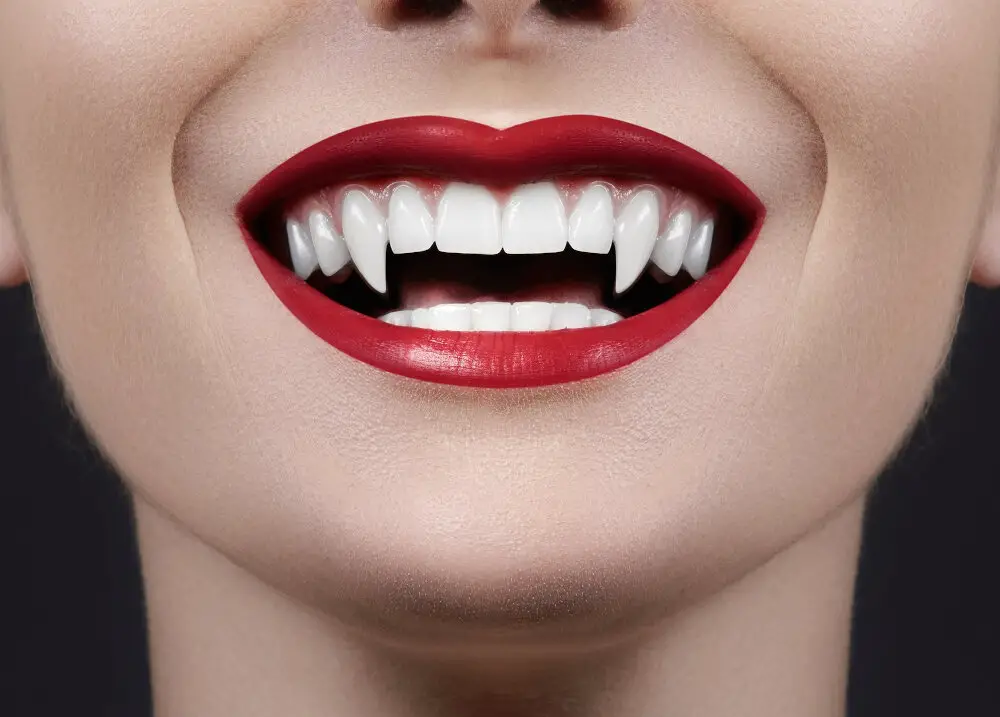
In conclusion, after wisdom teeth removal, it is essential to follow the dentist’s instructions carefully to promote healing and prevent complications. Patients should avoid chewing or consuming hard, crunchy, or sticky foods during the first week after surgery to allow the surgical site to heal properly. Additionally, sticking to a soft diet and maintaining good oral hygiene practices can aid in the healing process. Patients should also avoid smoking and using straws to prevent dry socket. While the timeline for chewing after wisdom teeth removal varies from person to person, it is generally safe to start introducing solid foods gradually after the first week. However, it is important to consult with your dentist or oral surgeon before resuming regular chewing activities. With proper care and attention, patients can recover quickly and comfortably after wisdom teeth removal.




